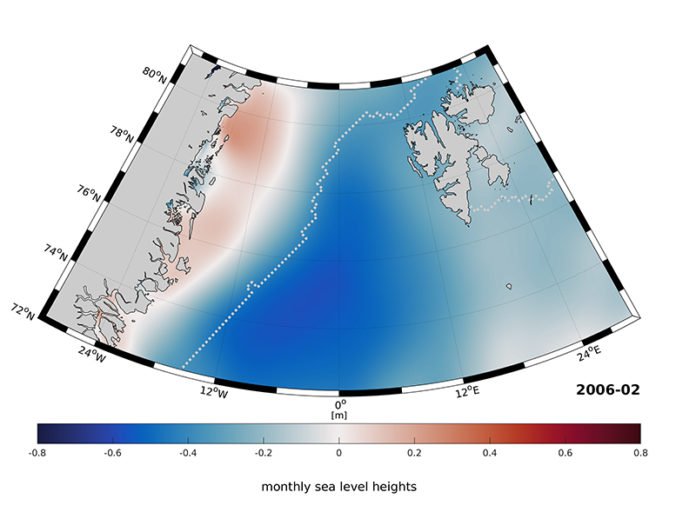Changes in sea level and ocean currents in the ice-covered regions of the Arctic and Antarctic, in particular, are very difficult to detect. It’s due to radar signals of the altimeter satellites that have been surveying the surfaces of the earth and oceans.
Radar satellites offer the data used to map sea level and ocean currents. But they become blind when it comes to oceans covered by ice. This renders the water underneath the ice invisible.
Scientists at the Technical University of Munich have now developed a new analysis method named virtual contact lenses to solve this problem. It is basically an adaptive algorithm ALES+, (Adaptive Leading Edge Subwaveform).
ALES+ consequently recognizes the bit of the radar flag which is reflected by water and infers ocean level esteems utilizing this data as it were. This makes it conceivable to correctly quantify the elevation of the sea water which achieves the surface through ice splits and openings. By looking at quite a while of estimations, climate scientists and oceanographers would now be able to reach determinations about changes in ocean level and sea streams.
Dr. Marcello Passaro of the TUM German Geodetic Research Institute said, “The special thing about our method is that it is adaptive. We can use one and the same algorithm to measure sea level in both open and ice-covered ocean areas. ALES+ can also be used for coastal waters, lakes, and rivers. Here the signals are highly varied, but always exhibit certain characteristic properties which the system then learns.”
The scientists were able to use a test scenario in the Greenland Sea to demonstrate that ALES+ returns water levels for ice-covered and open ocean regions which are significantly more precise than the results of previous evaluation methods.
The research is a part of the Sea Level Climate Change Initiative of the European Space Agency and is published in Remote Sensing of Environment.
